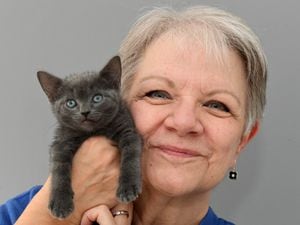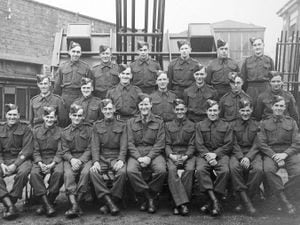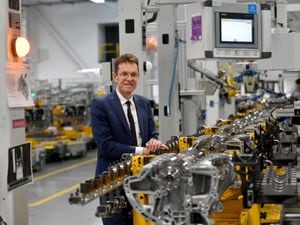They will kill you for your shoes: Wolverhampton migrant on life in Venezuela
Not so long ago, Venezuela was the richest country in Latin America, praised for its democracy and envied throughout the world for its expansive oil reserves.

Today it is a political and economic basket case. Venezuela’s people are starving on its violent and crime-ridden streets, and with no access to food, water or basic medical care, they are fleeing the country in their millions.
The crisis-stricken nation has suffered five hard years of recession under president Nicolás Maduro, who has refused to relinquish office despite mass opposition to his brutal regime.
According to the United Nations more than three million people have fled the country since 2015.
And Venezuelans are turning up nearly 4,500 miles away here in the Black Country, with at least five families now calling the region home.
Among them is Leandro Tucker, aged 17. Four months ago he fled his home town of Valencia, 100 miles from capital Caracas, for a new life in Wolverhampton.
Reflecting on life under Maduro, he said: “We did not live well. We lived on the cheapest food, certainly no meat. At times I could not leave the house as it was too dangerous. I was scared for my life because there were too many criminals on the streets.
“If I went out to kick a football I wore nothing on my feet. People would kill you to take your shoes. Children were eating rubbish from the bins.
“To buy bread there were large queues, and people would soon turn to violence.”
Crime is rampant In Venezuela, which has the world’s highest murder rate. More than 23,000 people were killed there last year – a fall on the previous year that is attributed to the fact that people are fleeing the country in their droves.
Leandro says everyone he knows back home is desperate to leave.
He managed to get out of the country on a family permit thanks to his father’s Portuguese heritage, but his mother is still in Venezuela.
She works as a teacher, but can’t afford to buy a chicken with her monthly salary.
The family hope to move her over to Britain soon, but it has become more difficult with the number of people trying to get out growing by the day.
Leandro is now studying English at college and lives in Ettingshall with his uncle Herbert Toro, 42. Along with his family, he fled Venezuela in the mid-2000s when the regime of Maduro’s predecessor, Hugo Chavez, was starting to fall apart.
The late Chavez is revered as a beloved leader by some, having spent billions in profits from the country’s oil economy on social welfare programmes for the poor.
As healthcare and education improved, poverty halved. But with the economy dependent solely on black gold, it has always been prone to collapse when oil prices fall.
Chavez’s attempts to turn state-run oil monopoly Petróleos de Venezuela (PDVSA) into his own private preserve saw his popularity plummet by the turn of the millennium.
But according to Herbert, life under ‘Chavismo’ was never quite as it appeared.
“A lot of people think life was better then, and compared to now, it was not so bad,” he said. “But many terrible things happened under Chavez.
“Everything was really expensive. No one had money, so you had a lot of crime. People found it impossible to pay their rent or mortgage. Life was getting worse by the day and we decided the time was right to leave.”
Together with his wife Edna and his namesake son, Herbert took his meagre savings and uprooted to Valencia in eastern Spain.
“We arrived just as the financial crisis really hit in Spain, it was not good timing,” he recalls. After seven years, during which time he and Edna had their second child Santiago and earned a living running a small cafe, he followed the example of one of his friends and moved to the UK.
“My friend recommended Wolverhampton. We knew nothing about it before we came here. The weather was so grey and different from what we had known, but in time we got used to it.”
Herbert worked his way up in kitchens across the West Midlands, working 60 hours a week in a Birmingham restaurant, before going on to work as a chef in Wolverhampton’s Mount Hotel.
He now works in Featherstone Prison, supervising inmates on kitchen duties. Edna works for TK Maxx, and the pair have added a third son to the Toro clan, 20-month old Aaron.
“Britain has been very good for us. We will always appreciate what this country has done for our family,” said Edna, 39.
Back in Venezuela, the US-backed Juan Guaido is struggling to take control since declaring himself interim president last month.
The humanitarian crisis has deepened, with Maduro blocking aid coming across the Colombian border. Hyperinflation has taken hold and you need a wheelbarrow full of cash to buy a loaf of bread.
Venezuela still has the world’s largest oil reserves – totalling nearly 300 billion barrels – yet it can’t feed its own people.
However, Herbert says the intervention of the international community into Venezuela’s problems has given him belief that things can finally change for the better in his home country.
“For the first time in 20 years I actually believe everything will be fine and that Venezuela can have a new start,” he said.
“The Government needs to change, but with countries like the UK involved, it gives us all hope.”





